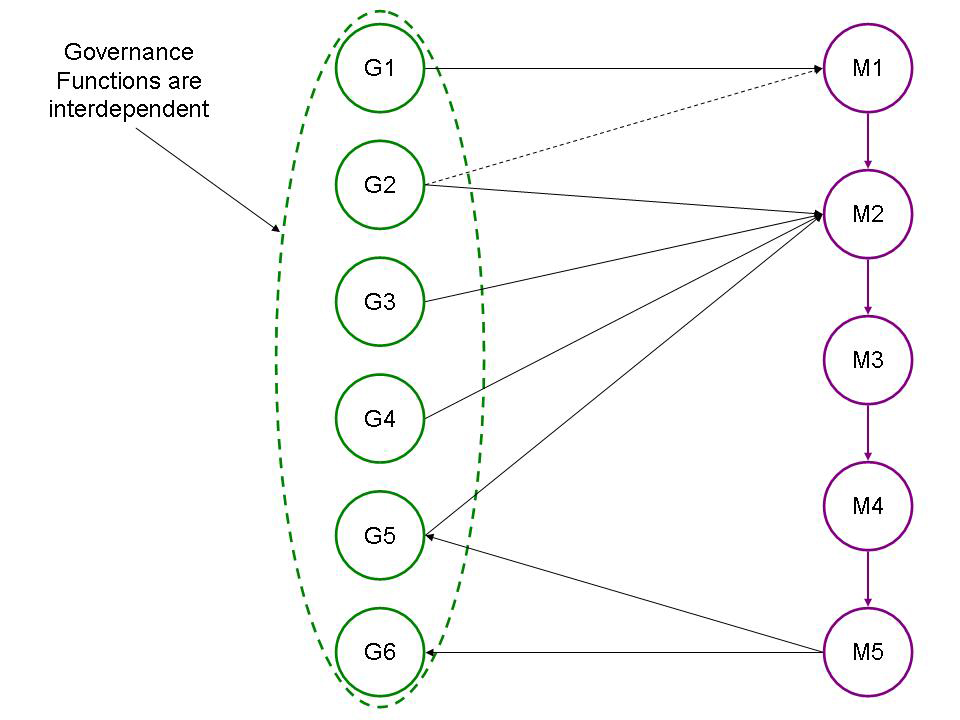Stakeholders expect good governance
Stakeholders are becoming increasingly vocal in their demands for ‘good governance’. The rise of stakeholder activism (remembering shareholders are stakeholders) is increasingly affecting the way organisations of all types are governed and managed, and this will in turn affect the way projects are initiated and managed, with consequences affecting your career.
One of the major errors in many people’s concepts of governance is confusing ‘good management’ with governance. Governance ≠ good management! Governance is firstly focused on creating the environment in which ‘good management’ can flourish and then on ensuring the organisation’s management is ‘good’.
Worldwide organisations are finding their stakeholders and shareholders are becoming less and less tolerant of governance failures leading to bad management. With this lack of tolerance manifesting through ever increasing numbers of government enquiries, criminal prosecutions and ‘class actions’ against organisations of all types and sizes from FIFA down.
Within our area of interest this means the project failures that may have been acceptable in the past are unlikely to go un-actioned in the future. Stakeholders are increasingly coming to expect organisations to proactively manage their investments in projects and programs effectively. This includes:
- The ‘management of projects’, focused on the full value chain from the initial investment decision through to the realisation of value;
- The traditional domains of project, program and portfolio management.
Achieving excellence across the value chain will not be easy, but does offer a unique opportunity for the overall project management profession to expand its influence beyond the narrow confines of project management into the broader arena of the management of projects.
Achieving this will require project management advocacy in both senior management circles, and governance circles. Organisations such as PMI are already actively involved in this work but to be effective, need to understand the difference between management and governance.
The primary focus of the governing body in any organisation should be balancing the competing interests of its diverse stakeholder community. The six functions of governance are:
- G1: Determining the objectives of the organisation
- G2: Determining the ethics of the organisation
- G3: Creating the culture of the organisation
- G4: Designing and implementing the governance framework for the organisation
- G5: Ensuring accountability by management
- G6: Ensuring compliance by the organisation
The functions of management focus on achieving the organisation’s objectives within the framework established by the governing body. The Five Functions of Management were defined by Henri Fayol in his 1916 book Administration Industrielle et Generale, as:
- M1: To forecast and plan
- M2: To organise
- M3: To command or direct (lead)
- M4: To coordinate
- M5: To control (French: contrôller: in the sense that a manager must receive feedback about a process in order to make necessary adjustments and must analyse the deviations).
This diagram plots the relationship between the Governance Functions and Management Functions outlined above. For example ‘G1 – Objectives’ has a direct relationship to ‘M1 – Planning’, which also has to consider ‘G2 – Ethics’. Most of the other governance inputs to management affect the way management organises the organisation. Management functions are assumed to be hierarchal with the governance inputs cascading down to lower level functions.
The challenge for many organisations is establishing an effective governance framework to frame and oversight the work of its management and thereby avoid many of the scandals we read about all too frequently.
The opportunity for the project management profession is that key part of each framework is the governance of the ‘management of projects’. This is the objective of ISO 21505, Project, programme and portfolio management — Guidance on governance, due for publication in 2016.
The challenge posed by this article is to see how we can start to influence the top end of our organisations to allow the effective and efficient delivery of the right projects and programs, managed the right way.
If the project management profession does not step up to this challenge someone else will. How do you think you can start to build influence?


